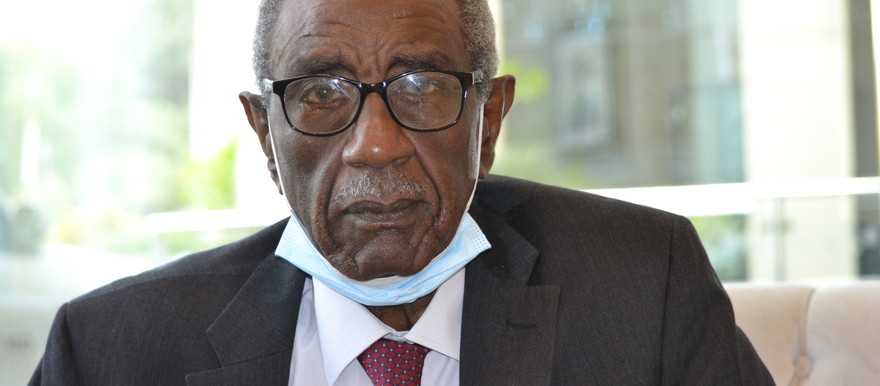The Governor of the Central Bank of Sudan said their delegation headed by Prime Minister Abdallah Hamdok which visited South Sudan over the weekend discussed the reentry of Sudanese commercial banks into the South Sudanese market.
Al Fateh Hussein Al Abiddeen Mohammed, the Governor of the Central Bank of Sudan, said Sudanese commercial banks were forced to leave South Sudan after independence because they practiced Islamic banking.
“Yes, last (Friday) evening we met the first deputy of the governor of the Central Bank of South Sudan and we discussed a lot of issues, most importantly we agreed to sign an MoU between the two central banks,” Governor Al Abiddeen said. “The agreement aimed at the exchange of experience between the two banks and to share the experience of Sudan on economic stability, including the exchange rate. All the other long processes that we are about to follow up with the international organizations.”
He added: “Before the secession of South Sudan, there was the Bank of Khartoum, Bank of Omdurman, Faisal Islamic Bank, and the Agriculture Bank of Sudan. All these banks were here in Juba and Wau. After the secession of South Sudan, they were forced to return to Sudan because South Sudan was using a conventional system but the Sudanese banks were using Islamic system (banking),”
Asked when the Sudanese commercial banks will begin operations in South Sudan, he said, “The Central Bank of Sudan doesn’t have to decide on behalf of the banks. This is the decision of the board of governance of each bank. After the signing of this MoU, we will now engage local banks to hold its conference and later on decide. We will be signing these documents next month.”
Governor Al Abiddeen said they agreed on several bilateral relations, including the monitoring of banks, technology, small business, financial inclusion, and structures.
“We also discussed the dual banking system by Sudan, after its legislations have been passed, we now have conventional banking, which is being used all over the world and even here in South Sudan. During the previous period, we have been using Islamic Banking,” he said. “So, we also looked at the possibility of opening Sudanese banks here in Juba and other states. It will use a conventional system. We also discussed training and we asked our brothers in the Central Bank of South Sudan to prepare an MoU, which will be discussed in early September in Khartoum.”
Governor Al Abiddeen said the two countries should open their borders to mutually benefit from each other.
“First of all, I want to assure you that we are one country but for these two countries to enjoy the benefits of each other, we should open up borders and trade exchanges. We need to see that banks are opened, river transport, railway, and other border roads are opened as well. Trade is one of the things that ties the people together through developing commercial banks which will lead to the prosperity of the two countries,” he said.




